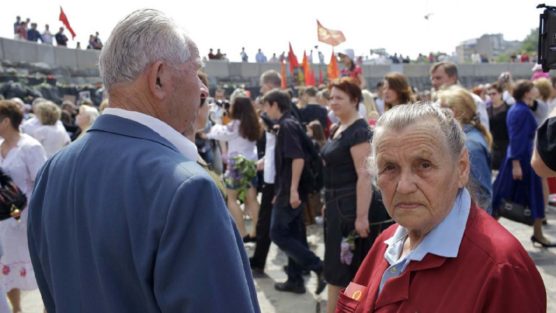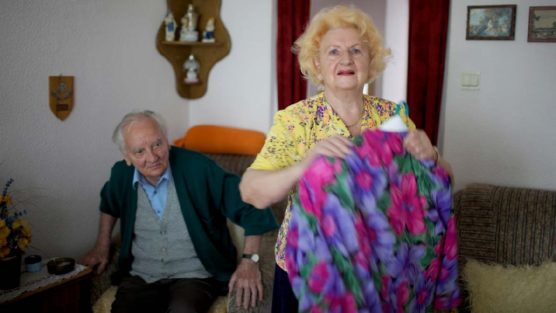
Synopsis
The dramatic life stories of three women who were forced to serve Hitler’s Reich.
They arrived from Poland, Russia, Ukraine, the Czech Republic, France, Holland and Belgium – forced laborers deployed to churn out supplies for the battlefront and the German home front during the Second World War. They toiled in munitions factories, produced household goods or worked in agriculture. There were some 13 million of these forced laborers working for the Third Reich during that period. They were brought in mostly from the countries occupied by the German army or from the German protectorates. For most, the experience changed their lives forever. This groundbreaking documentary, the first to examine the forced laborers’ post-war fates, seeks to answer the question of how their lives were affected by this experience. What happened to the Ukrainian, the Pole and the Czech? Three lives which could not be more different yet have one thing in common – forced labor in Nazi Germany.
Country
Czech Republic
Germany
Producers
Kateřina Černá
Simone Baumann
Solveigh Hardt
Genre
Documentary
Co-producers
Česká televize, rbb Fernsehen
Release Date
8. 3. 2011
Screening Formats
DCP
Runtime
89 min
Trailer & Photogallery
Cast & Crew
Director
Tomáš Kudrna
Writer
Tomáš Kudrna
Cinematography
Marcus Winterbauer
Editor
Evženie Brabcová, Šimon Špidla
Music
Matthias Falkenau
Sound Designer
Christian Carl, Johannes Deberenz, Ivan Horák, Ulla Kösterke, Daniel Němec, Martin Witte
About the film
The idea to make a documentary film about forced labourers emerged in 2007. At that time, Tomáš Kudrncooperating on a different film with a Leipzig producing company Le Vision in Leipzig, which received an offer from ARD television to make a film about forced labourers. The representatives of the German foundation EVZ Stiftung then came up with a proposal that Jiří Menzel participate in this film. In the end, he was involved in the film The Day After a Long Night only as a supervisor.
Finding suitable protagonists, however, took a long time because they had to meet the given criteria – they had to come specifically from Ukraine, Poland, and the Czech Republic. The director also wanted to find protagonists whose lives were changed by forced labor and had a major impact on their post-war story, who is in good shape despite their age and would be able to travel, for example, across half of Europe to the places where they were forced to work during the war. As first, they managed to find a woman with an exceptional life story from Ukraine, Inna Klimenko. Literally at the last minute, thanks to the German producer and cooperation with non-profit organizations, it was possible to find two more participants, Barbara Müller and Libuše Audrlická, whose stories are equally dramatic and full of turning points.








